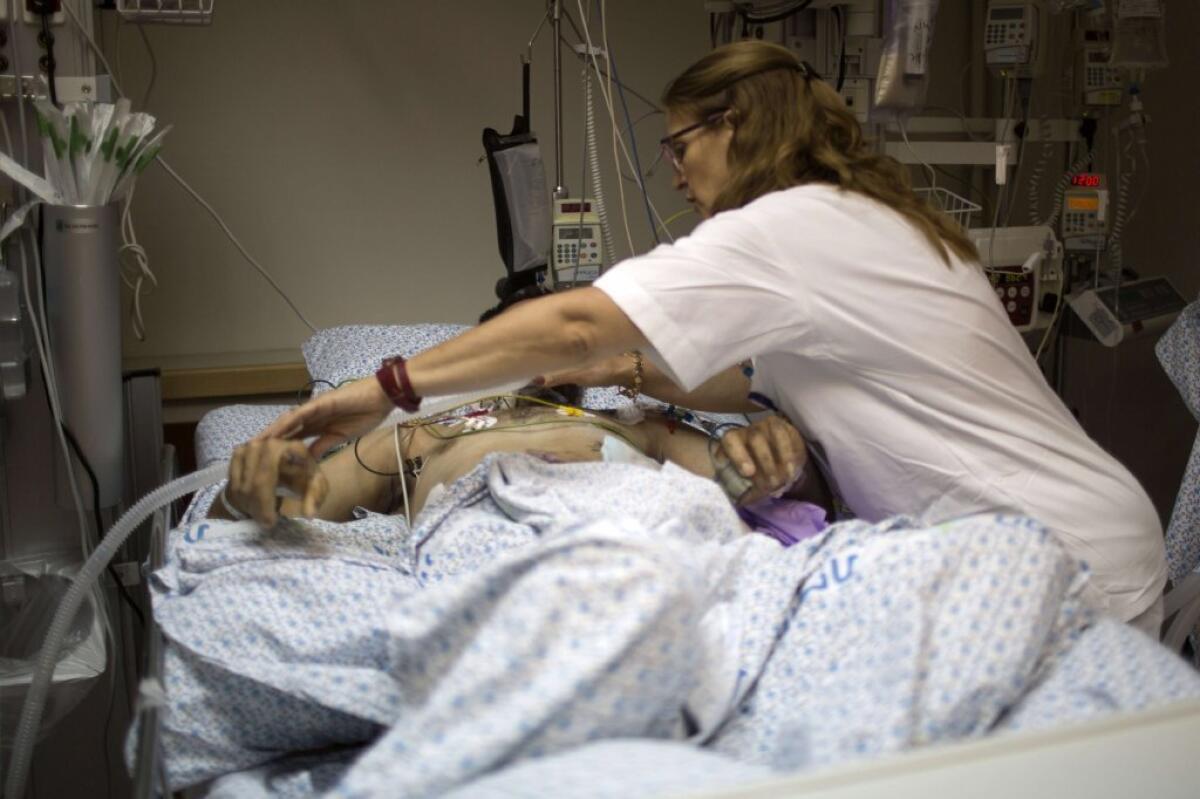Intensive care treatment is often futile and costly, study finds

Nearly 1 in 5 patients in a hospital’s intensive care unit gets care and treatment judged by the physician in charge to be ineffective, needlessly aggressive or pointless given the patient’s dire state, a new study says. And the financial costs of that care are steep as well, adding up to $2.6 million over a three-month period at a single academic medical center.
The study, conducted at an unnamed academic medical system in Los Angeles, found that of 1,125 patients who spent time in the ICU during a three-month period, 98 received treatment that their physicians perceived as “possibly futile,” and 123 received treatment that their physicians considered futile.
Written by a group of UCLA researchers, the study followed patients and their physicians and surveyed the latter daily on their view of treatments provided. That ruled out judgments of futility that were colored by a physician’s knowledge of a patient’s outcome.
The study was published in the journal JAMA Internal Medicine on Monday.
In 58% of the 221 cases judged to be possibly futile or futile, the physician in charge believed the burdens of the treatment he or she was providing “grossly outweighed” any benefit the patient would probably get. Just more than half deemed treatment futile because they believed it would “never reach the patient’s goals.” In 37% of cases, a patient’s imminent death was cited as the basis for judging treatment provided to be futile. And in 31% of the cases, physicians deemed their treatment futile because they believed a patient would never survive outside a hospital’s intensive care unit.
Indeed, the survival rates of those who were given treatment judged to be futile were grim: 68% died while still in the hospital, and 16% died within six months of leaving the hospital.
Identifying how often treatment judged as futile is given and toting up its cost are “a first step toward refocusing care on treatments that are more likely to benefit patients,” wrote the authors, led by UCLA pulmonologist and critical care specialist Dr. Thanh N. Huynh.
In an accompanying commentary, a pair of critical care doctors urged first that physicians eschew the use of the term “futile” in describing treatments unlikely to save, extend or improve a patient’s life. Noting that loved ones rarely ask for treatment that stands no chance at all of helping the patient, Massachusetts General Hospital’s Dr. Robert D. Truog and UPenn Medical Center physician Douglas B. White urged doctors to use the term “potentially inappropriate” to describe treatment they believe is unlikely to help.
When a patient’s loved ones do ask for treatments a physician considers futile, Truog and White urged the doctor to step up his or her communication, not to refuse or withdraw. If the physician offers a clearer sense of a patient’s prognosis, provides more emotional support and elicits a discussion of the patient’s values, families may alter their demands, they wrote.
Truog and White also call for greater use of palliative care experts - a growing trend in medicine that focuses on a patient’s comfort rather than a cure. And when loved ones continue to insist on treatment not likely to help, physicians “should not simply acquiesce” but should pursue a dispute resolution process rather than outright refuse the request, Truog and White wrote.




